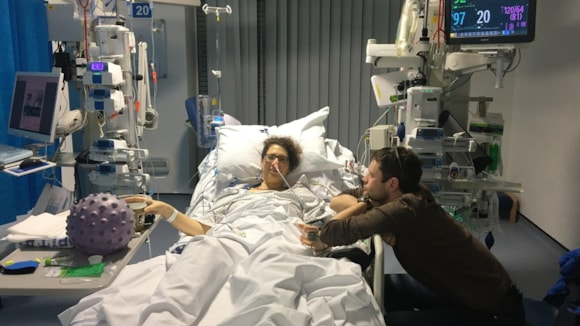Widower backs new pancreatic cancer breath trial
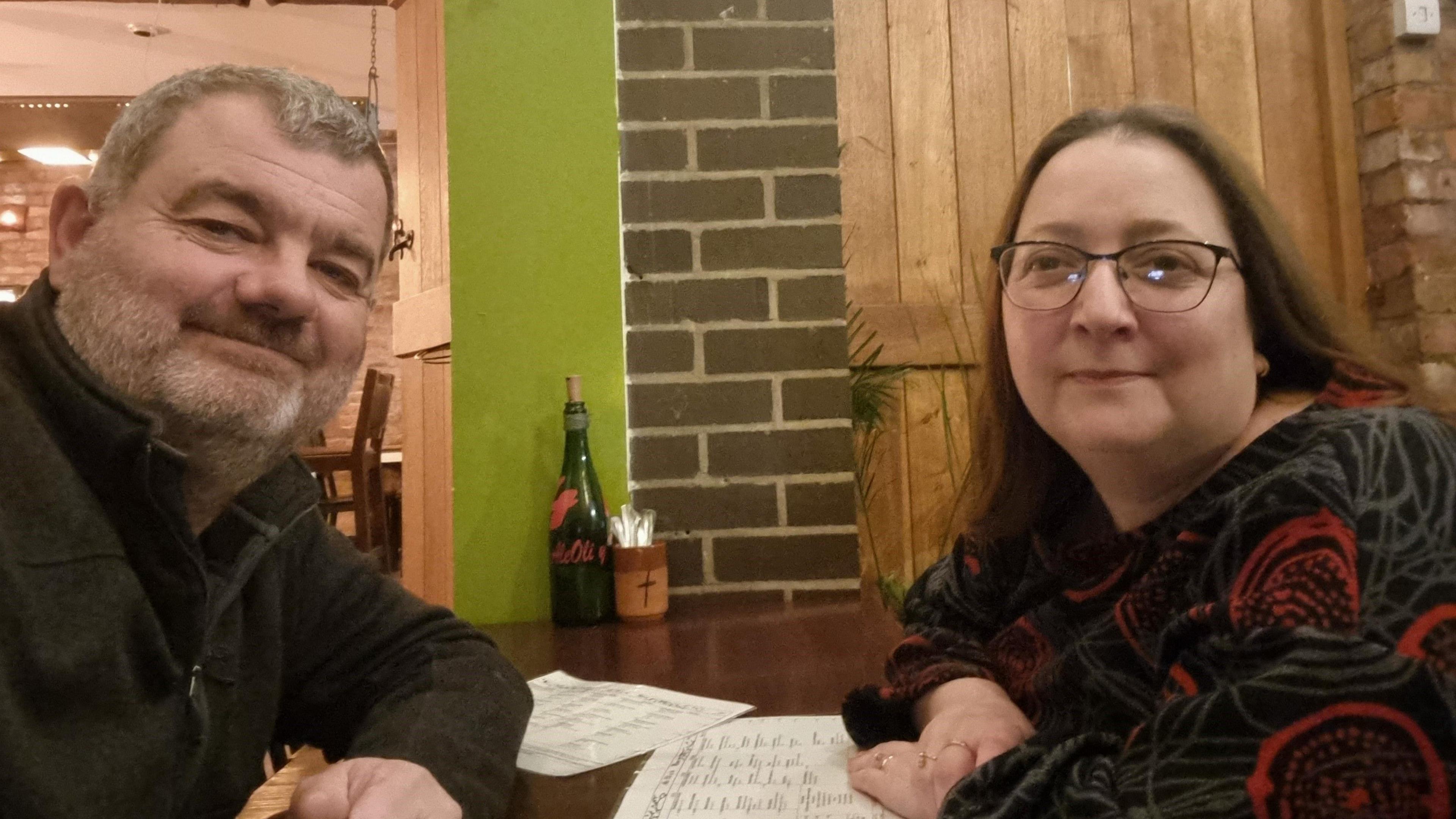
Andrew Palmer's wife Jen died a month after being diagnosed with pancreatic cancer
- Published
A man whose wife died from pancreatic cancer is backing a new clinical trial into breath tests which could help detect the disease.
Andrew Palmer's wife Jen, 50, was diagnosed with pancreatic cancer in February 2024 and died a month later.
Pancreatic Cancer UK has invested more than £1.1m, to develop the test into a study. It finds volatile organic compounds in the breath, detectable in cancer patients even at the early stages of disease, it said.
"If there had been a breath test, perhaps that would have been performed when she first presented with symptoms - she may have been eligible for treatment, at least giving her more time," said Mr Palmer, 55, of Oswestry, Shropshire.
"Jen thought she had time and had planned things to do for the kids. We had no idea how little time we had left with her."
No screening or early detection tests exist for pancreatic cancer.

Andrew Palmer said a breath test at the start of his wife Jen's symptoms may have meant she was eligible for treatment
"Jen had so many different tests: blood tests, scans, endoscopies, but it didn't pick up the cancer," Mr Palmer said.
"She was diagnosed too late and was too physically weak for chemotherapy to have given her more time.
"The brutality of the disease can't be understated, there are no options at late stages - there must be hope for those who will go through this in the future."
The money invested by Pancreatic Cancer UK will see the test become a multi-centre validation study, and will then seek adoption by the NHS.
Patients would be recruited from the NHS Urgent Suspected Cancer Pathway – under which patients should receive an appointment within two weeks of a GP referral.
The trial would involve more than 6,000 patients with an unknown diagnosis, and would see about 40 trial sites set up at hospitals across England, Scotland and Wales.
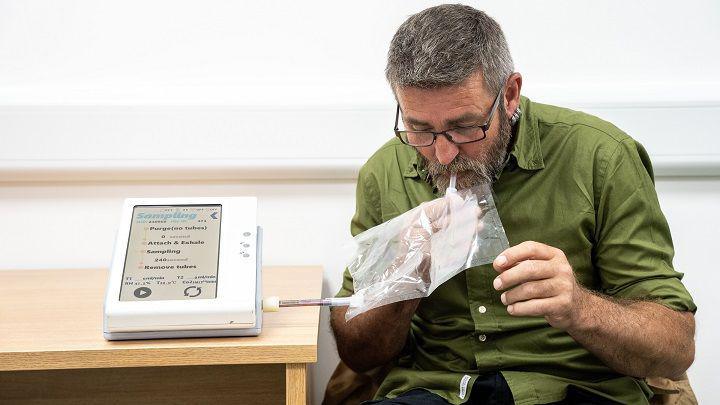
The test detects volatile organic compounds in the breath, which scientists say are detectable in cancer patients even at the early stages of disease
Suzanne, a former theatre nurse from York, was diagnosed with the disease in September 2023, but was eligible for surgery.
She said she wanted to underline the difference an early diagnosis makes and hoped that in future, the test could save thousands of other families the pain of losing a loved one.
"I have no doubt that if my doctor hadn't taken note of my symptoms and referred me to the hospital where I was quickly sent for a CT scan, things would have been different," she said.
Louise Dale from Gresford in Wrexham lost her mum 12 weeks after she was diagnosed with pancreatic cancer.
She hopes the test can save others.
"We were heartbroken and angry that it had been left so long. From then, Mum went downhill very quickly," she said.
"On top of her existing symptoms, she suffered from diarrhoea and horrendous nausea... she couldn't even bear to sit upright. It was truly horrendous."
Diana Jupp, CEO of Pancreatic Cancer UK, said the breath test had the potential to revolutionise the early detection of pancreatic cancer.
"It is, undoubtedly, the most significant step toward a lifesaving breakthrough in 50 years," she said.
Get in touch
Tell us which stories we should cover in Shropshire
Follow BBC Shropshire on BBC Sounds, Facebook, external, X, external and Instagram, external.
- Published18 October
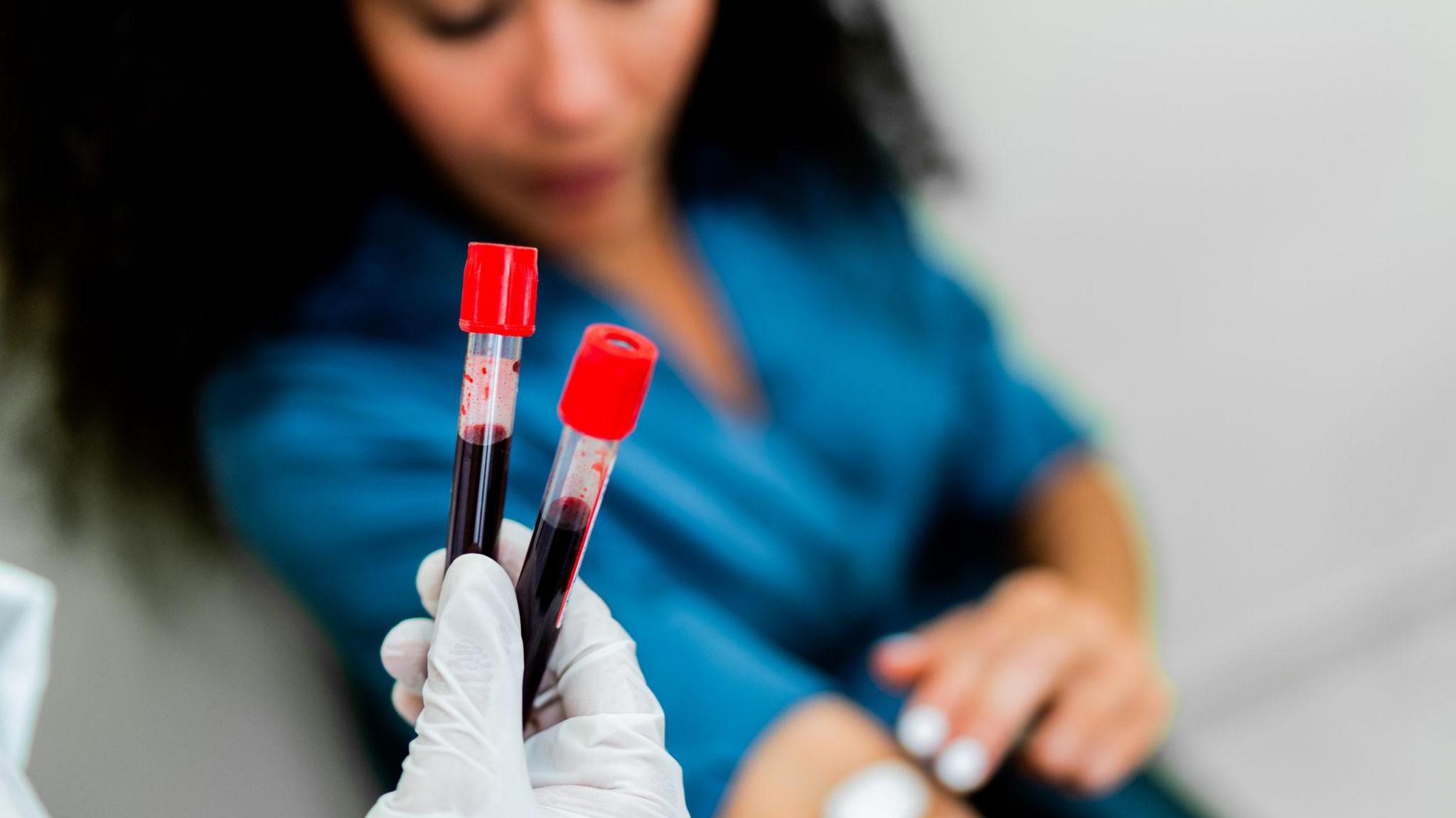
- Published16 June
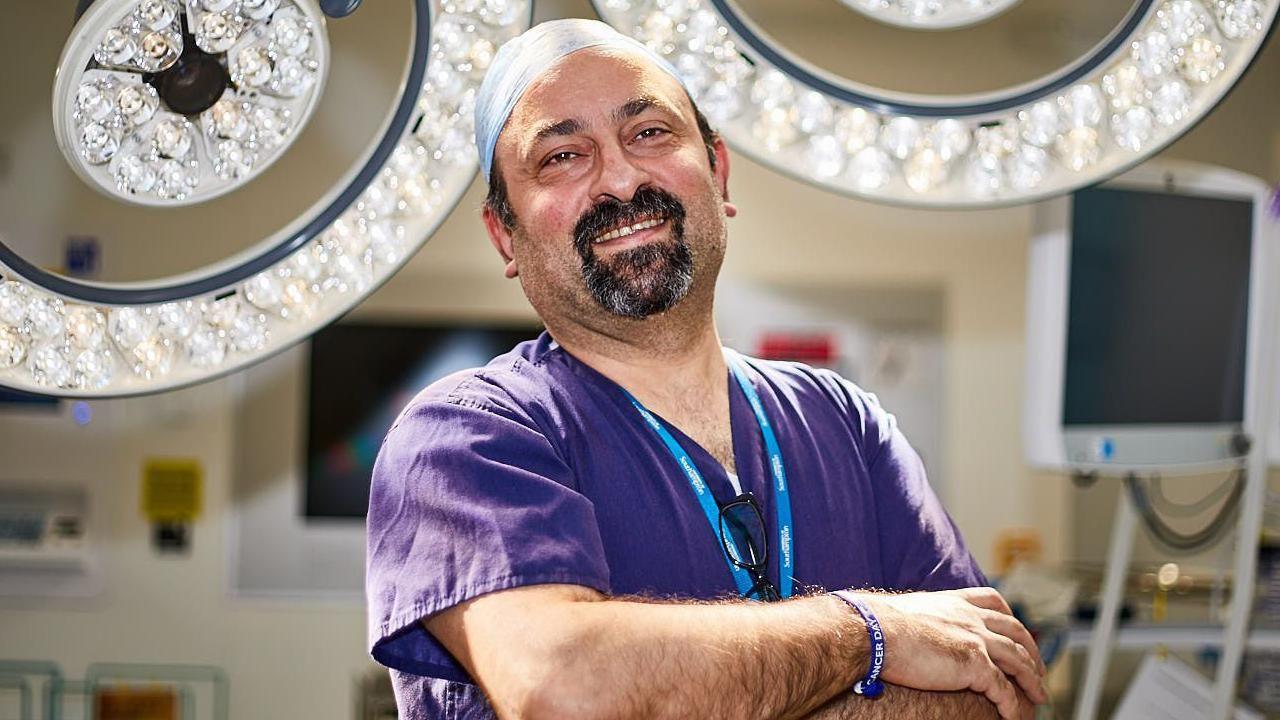
- Published25 November 2024
